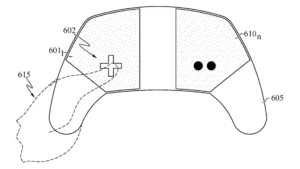Union Commerce and Industry Minister Piyush Goyal has reiterated that India will not allow evergreening of pharmaceutical patents. Speaking at a recent trade event, Goyal highlighted India’s commitment to affordable healthcare and equitable access to medicines. He firmly stated that evergreening contradicts Indian law and undermines public health.
🔍 What Is Evergreening?
Evergreening is a strategy where pharmaceutical firms seek new patents for minor changes to existing drugs. These changes often include alterations in formulation, dosage, or delivery methods. The intent is to extend monopoly rights and delay generic drug entry.
India’s Patents Act, 1970, under Section 3(d), prohibits such practices unless the new version offers significantly enhanced therapeutic efficacy.
👉 Read Section 3(d) of the Indian Patents Act
👉 What is Evergreening – WHO Definition
🗨️ Goyal’s Firm Stand Against Evergreening
Piyush Goyal emphasized that India has faced repeated pressure from multinational pharmaceutical companies to weaken its IP laws. He stated:
“India does not permit evergreening. We protect genuine patents. But we will not let companies misuse the system to maintain monopolies.”
He challenged critics to show a single instance where India violated intellectual property rights. According to Goyal, none have been able to do so.
⚖️ The Legal Foundation: Section 3(d)
India’s Section 3(d) is a globally recognized provision. It has prevented the misuse of the patent system and has been upheld by the Supreme Court of India in the Novartis vs. Union of India case.
In 2013, India’s top court rejected Novartis’ patent for a modified version of the cancer drug Glivec, ruling it lacked increased efficacy.
👉 Learn more about the Novartis Case
This ruling became a milestone in India’s public health jurisprudence and strengthened the nation’s stance on patent quality over quantity.
🌍 Public Health Over Profits
Goyal underlined that India’s patent system aims to balance innovation with access. He noted:
“Our goal is to make life-saving medicines available at affordable rates—not to support super-profits for a few companies.”
India’s approach supports global healthcare. The country is known as the “Pharmacy of the Global South”, supplying low-cost generics to over 200 nations.
The government also runs Ayushman Bharat, one of the world’s largest public health programs, covering more than 620 million people.
👉 Visit Ayushman Bharat official website
🌐 Global Support and Recognition
India’s position has gained support from global health advocates. Organizations like Médecins Sans Frontières (MSF) have praised Section 3(d) for preventing abusive patent extensions.
International forums including the World Trade Organization (WTO) have acknowledged India’s right to use TRIPS flexibilities to protect public health.
🧾 Summary Table: India’s Policy on Patent Evergreening
| Issue | India’s Position |
|---|---|
| Evergreening | Strictly prohibited under Section 3(d) |
| Valid Patents | Fully respected during legal term |
| TRIPS Compliance | Yes, with use of flexibilities |
| Pressure to Amend IP Laws | Resisted to safeguard public health |
| Generic Medicine Promotion | Encouraged for affordable drug access |
🔑 Key Takeaways
- India will not compromise its patent law to favor big pharma.
- Section 3(d) remains the cornerstone of India’s patent policy.
- The government remains committed to TRIPS-compliant innovation and global medicine accessibility.




